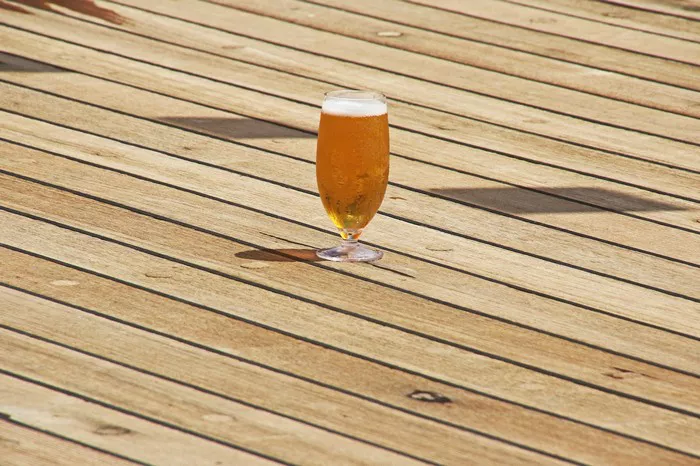Beer, a popular beverage enjoyed by millions worldwide, has long been associated with social gatherings, relaxation, and even sports events. However, amid its widespread consumption, a persistent question lingers: Does beer make you dehydrated? In this comprehensive exploration, we delve into the scientific evidence behind this age-old inquiry, seeking to dispel myths and provide clarity on the effects of beer consumption on hydration levels.
Beer, crafted through the fermentation of grains such as barley, hops, yeast, and water, boasts a rich history spanning millennia. From ancient civilizations to modern breweries, the art of brewing has evolved, yielding an array of beer styles with distinct flavors, aromas, and alcohol contents. Despite its cultural significance and diverse offerings, concerns regarding beer’s potential to induce dehydration have persisted, prompting scrutiny from researchers and health professionals alike.
Understanding Dehydration: A Complex Interplay
Dehydration, characterized by an inadequate intake or excessive loss of fluids, poses significant health risks, ranging from mild discomfort to severe complications. The body’s water balance, governed by intricate physiological mechanisms, relies on the consumption of fluids to replenish losses incurred through various metabolic processes, respiration, and perspiration. While the consumption of alcoholic beverages like beer can contribute to fluid intake, its diuretic properties have sparked debates regarding its impact on hydration status.
Beer, comprising varying concentrations of alcohol by volume (ABV), plays a pivotal role in the hydration equation. Ethanol, the primary psychoactive compound in alcoholic beverages, exerts diuretic effects by inhibiting the release of vasopressin, a hormone crucial for water reabsorption in the kidneys. Consequently, frequent urination ensues, potentially leading to fluid loss and dehydration. Despite these physiological responses, the extent to which beer contributes to dehydration remains subject to scientific inquiry and contextual factors.
See Also: Is Gluten-Free Beer Low in Carbs?
The Alcohol Conundrum: Balancing Act of Hydration
As a quintessential ingredient in beer, alcohol fundamentally shapes its physiological effects, including its potential to impact hydration. The ABV of beer, ranging from light to potent, influences the magnitude of alcohol-induced diuresis and subsequent fluid losses. While higher ABV brews may exacerbate dehydration due to increased ethanol content, lower alcohol variants offer a more nuanced hydration profile, with the potential to mitigate diuretic effects.
Beer, renowned for its social appeal and diverse styles, encompasses a spectrum of hydration dynamics influenced by factors beyond alcohol content. Carbonation, a hallmark feature of many beer styles, can enhance gastric emptying and promote fluid absorption, potentially offsetting the diuretic effects of alcohol. Additionally, the presence of electrolytes in certain beer styles, such as salted or sour varieties, may modulate fluid balance and mitigate dehydration risk, albeit to a limited extent.
Context Matters: Factors Affecting Beer’s Hydration Impact
Beyond its intrinsic composition, the hydration impact of beer hinges on an array of contextual factors, ranging from individual physiology to drinking patterns and environmental conditions. Variations in body mass, metabolism, and tolerance to alcohol can modulate an individual’s susceptibility to dehydration following beer consumption. Moreover, the interplay between beer and concurrent intake of water or other beverages can influence overall hydration status, warranting personalized approaches to consumption.
Environmental factors, including temperature, humidity, and physical activity levels, further shape the hydration dynamics of beer consumption. In hot and arid climates, the diuretic effects of alcohol may be compounded by increased perspiration rates, heightening dehydration risk. Conversely, moderate beer consumption in temperate environments, coupled with adequate water intake, may pose minimal dehydration concerns, particularly during sedentary activities.
Navigating Hydration: Strategies for Responsible Beer Consumption
Armed with scientific insights and contextual awareness, individuals can adopt strategies to enjoy beer responsibly while maintaining hydration equilibrium. Prioritizing moderation, pacing consumption, and interspersing beer with non-alcoholic beverages can mitigate the risk of dehydration and promote overall well-being. Furthermore, selecting lower ABV or sessionable beer styles can offer a more balanced hydration profile, minimizing the diuretic effects of alcohol.
Hydration-conscious beer enthusiasts may also explore alternative formulations, such as non-alcoholic or low-alcohol beers, which offer the sensory experience of traditional brews without the potential for dehydration. These emerging options cater to health-conscious consumers seeking to reconcile their enjoyment of beer with mindful hydration practices, reflecting evolving trends in the beverage industry.
Conclusion: Dispelling the Myth
In conclusion, the question “Does beer make you dehydrated?” elicits a nuanced response shaped by scientific evidence, individual variability, and contextual considerations. While beer’s alcohol content and diuretic properties can contribute to fluid losses, its overall impact on hydration status is contingent upon numerous factors, including ABV, carbonation, electrolyte content, and environmental conditions. By adopting responsible consumption practices and maintaining awareness of hydration needs, individuals can enjoy beer in moderation while safeguarding their well-being. As with any dietary choice, balance and mindfulness are paramount, ensuring that the pleasures of beer remain harmoniously aligned with hydration goals.


